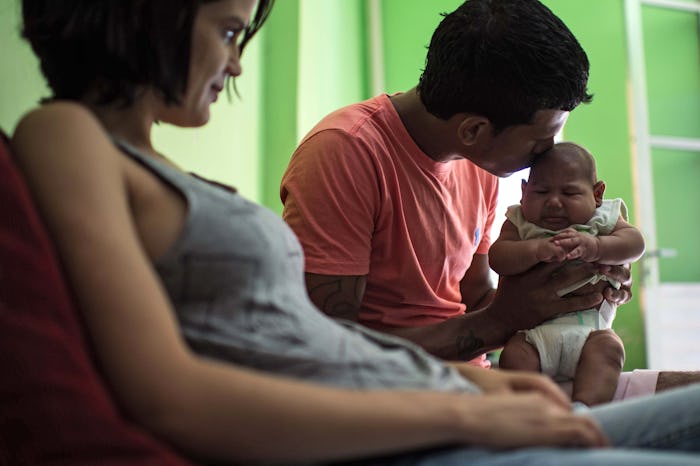Life

The One Reason Why You Need To Avoid Getting Zika
News of the Zika virus — everything from travel warnings to cruise re-bookings to pregnancy-safe bug spray — has flitted in and out of the news cycle much like its annoying disease carrier, the Aedes species mosquito. Comfortably situated in the U.S., most Americans don't have to worry about catching Zika unless they're traveling to Zika-affected regions. But here's one reason why you need to avoid getting Zika — and it has to do with doing your part to maintain public health. For someone like me, who lives in New England and wonders daily "Will this cold ever end?," the Zika virus isn't exactly high up on my "Things To Worry About Today" list. But it's exactly because of people like me that everyone needs to concern themselves with the Zika virus — and how they personally can prevent transmission.
This is because of a scenario known as "herd immunity" — you may have heard the term used in conjunction with vaccination. Essentially, the more a group protects itself from an infection (usually via a vaccine), the less likely those that haven't protected themselves (the unvaccinated) will get the disease, because there's a lesser chance of transmission among the herd.
In this case, a little dose of public education can go a long way in helping to stop the transmission of Zika entirely, especially as the public waits for the development of a Zika vaccine. Even when President Obama called for $1.9 billion in appropriations toward developing a Zika vaccine back in February, Congress still won't pay for Zika research appropriations. So, in lieu of a Zika vaccine at the moment, what can we do as citizens invested in maintaining the herd immunity?
First, let's take a look at how the Zika virus spreads. A person contracts the Zika virus — maybe while they were away during spring break in one of the 41 Zika-affected regions of the world. They come home from their sunny vacation, perhaps feeling a bit under the weather. "Just ate some bad food," they might think. As they sit outside sipping a glass of wine at dusk, or perhaps while getting into their car at 6 a.m. for their morning commute — a tiny little mosquito of the Aedes species lands on their arm and bites them. That little Aedes mosquito has now contracted Zika, courtesy of one careless spring break traveler. And that little Aedes mosquito full of Zika can now wreak havoc in the broader community, particularly for pregnant women.
NBD, right? Not my problem, perhaps? With warmer weather coming, NASA has warned that Zika might spread even farther and faster, with Zika spreading to the Northeast by summer. And in case you thought "Oh, I'll just buy some buy spray," you should spring for some condoms, too — because it's not just mosquito bites, either: it's been confirmed that Zika can also be sexually transmitted.
So, here's why all of this matters: In countries like the U.S., many people not only have a tremendous amount of public health resources to be able to educate ourselves, but they also have the wealth to prevent themselves from catching Zika in the first place. Whether it's rescheduling that trip planned for Aruba or stocking up on bug spray with DEET at your local drug store, many people have the means to be able to actively prevent Zika infection in their communities.
Just because the Zika virus seems like it's a problem for other people in other backyards around the world doesn't mean Americans can't do their part to help stop Zika from spreading in their communities when — not if — it reaches them. It won't be long before Zika will be in everyone's backyards. By taking the time to learn about the virus and protecting yourself from it, you can help help to protect those around you.